How does a toxic relationship feel like? Being in a toxic relationship can take a lot from you, both mentally and emotionally. Such kinds of relationships have a way of making you feel negative and defeated all the time. It is as if you cannot do anything right at all, and no matter how much you invest in the relationship, it is never enough.
The things you feel in a toxic relationship can have serious repercussions when it comes to your mental health, peace, and confidence.
5 Things That Only Happen When You’re In A Dead-End, Toxic Relationship
There is a rise of toxic people in our world so there is a rise in toxic relationships.
Unfortunately, many of us have experienced the signs of a toxic relationship at least once. You could even be in one right now!
We question how they can be avoided and maybe even if we are the toxic person. We ask ourselves why, after experiencing past toxic relationships, do we continue to have them?
Why are we vulnerable to the lure of toxic and unhealthy relationships? Do we possess some magnetic force that pulls us toward toxic love and toxic people?
“Toxic people attach themselves like cinder blocks tied to your ankles, and then invite you for a swim in their poisoned waters.” ―
Unhealthy relationships pop up in our personal and professional lives.
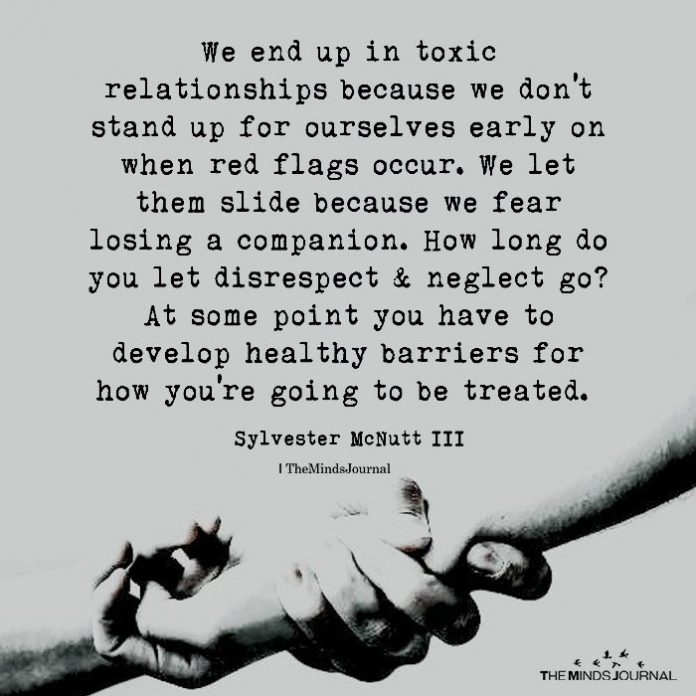
Every couple goes through relationship problems but toxic and unhealthy relationships are different.
And the one major thing to note is that you are consistently being brought down and feel used by this person. You feel taken advantage of and angry not only at them but at yourself.
But, why do we seek them out?
The tendency to unconsciously seek out toxic relationships usually starts with past negative experiences when we are children and might carry on throughout our lives.
Read: 5 Ways Letting Go Of A Toxic Relationship Will Change Your Life
They can be become so deeply ingrained in the way we think and feel that we do not realize we are steeped in toxicity.
How so? In a toxic relationship, you do not bring up how you feel.
Maybe you do not want the person to be angry because they hold some sort of power over you, or you are holding on to the dream that one day they will wake up, realize their transgressions and make good.
That most likely will never happen unless they come to some sort of realization that they are toxic in a relationship. An important note to make is not to sink down to some sort of passive-aggressive level with them.
If you cannot find a proper way to communicate with them, ask yourself, “How is this relationship benefiting me?”
Here are 5 ways you feel when you are in a toxic relationship.
1. It seems like you can’t do anything right
Does this person constantly put you down? Do they make you feel like you are not good enough and mock your personality?
Do you feel ashamed most of the time? Do you only feel accepted when you take on the traits of the person doing the condemning or judging?
2. Everything is about them and never about you
You have feelings too, but the other person will not hear them. You are unable to have a two-sided conversation where your opinion is heard, considered, and respected.
Instead of acknowledging your feelings, they battle with you until they get the last word.
“Toxic people spread their toxin to you and then you, in turn, become a wasteland like they are.” —Body Focus
Read: Can Narcissists Love? The Psychology of Toxic Relationships
3. You’re unable to enjoy good moments with them
Every day brings another challenge. It seems as though they are always raising gripes about you.
Their attempt to control your behavior is an attempt to control your happiness.
4. You’re not comfortable being yourself around them
You do not feel free to speak your mind. You have to put on a different face just to be accepted by that person.
Then, you realize that you do not even recognize yourself anymore.
Read: 6 Early Red Flags Of A Toxic Relationship
5. They don’t allow you to grow and change
Whenever you aim to grow and improve yourself, the other person responds with mockery and disbelief. There is no encouragement or support for your efforts.
Instead, they keep you stuck in old judgments insisting that you will never be any different than you are now.
If you are experiencing even just one of these signs, check in with yourself to see if the relationship is doing more damage than good.
We all deserve healthy relationships but we won’t get them if we’re stuck in unhealthy ones.
“You don’t ever have to feel guilty about removing toxic people from your life.”
Stay as far away as you can from toxic relationships. Most of the time, people do not get involved in a toxic relationship knowingly. So, the moment you realize that your relationship is not a healthy one, SHUT. IT. DOWN. Breaking up with your partner will be tough, but healthy for you in the long run. Always remember, that you deserve much better.
Check out this video below about toxic relationships:
Written by Doren Weinstein
Originally Published on Yourtango
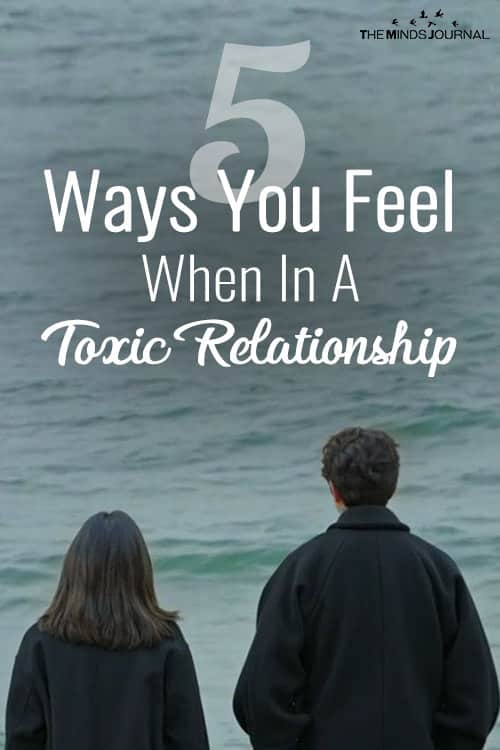

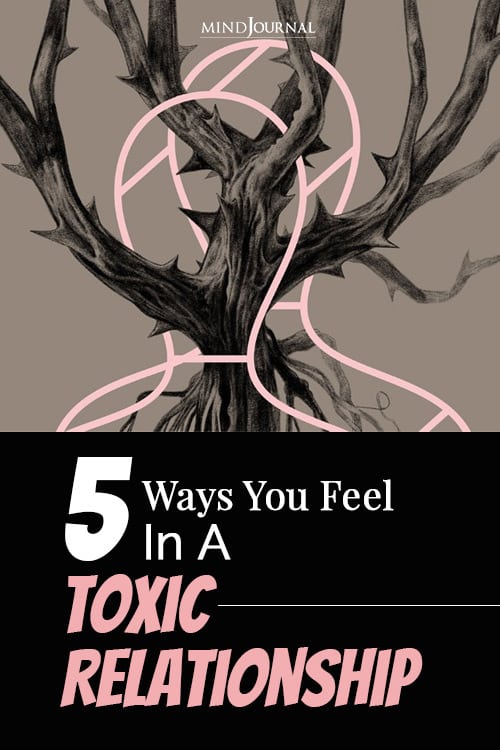
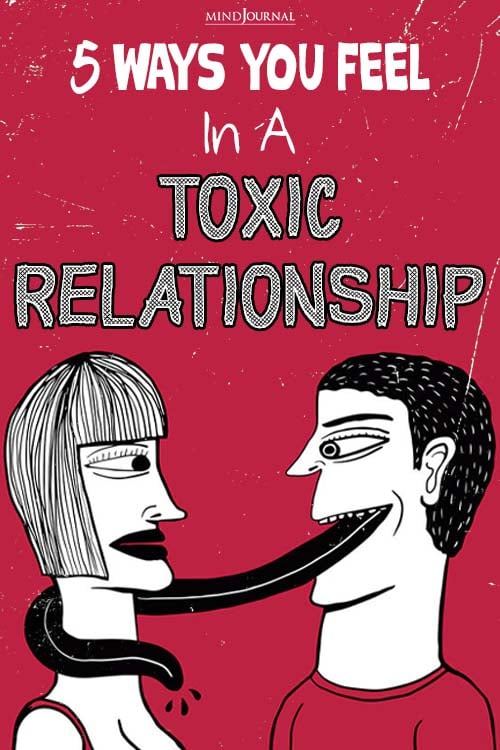
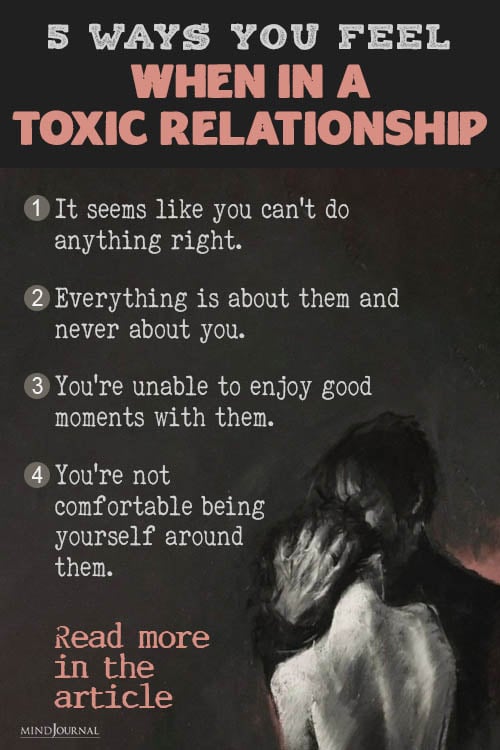

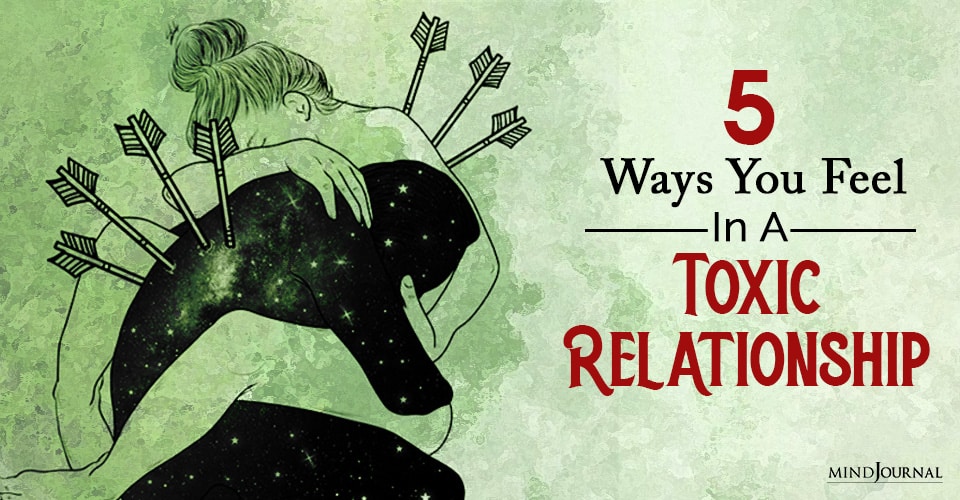







Leave a Reply